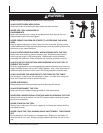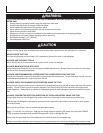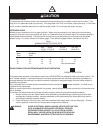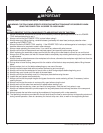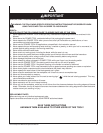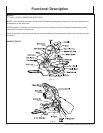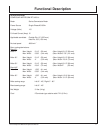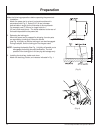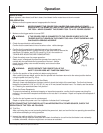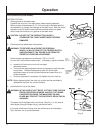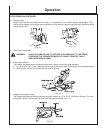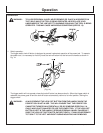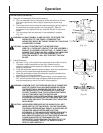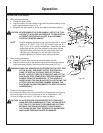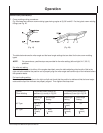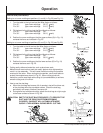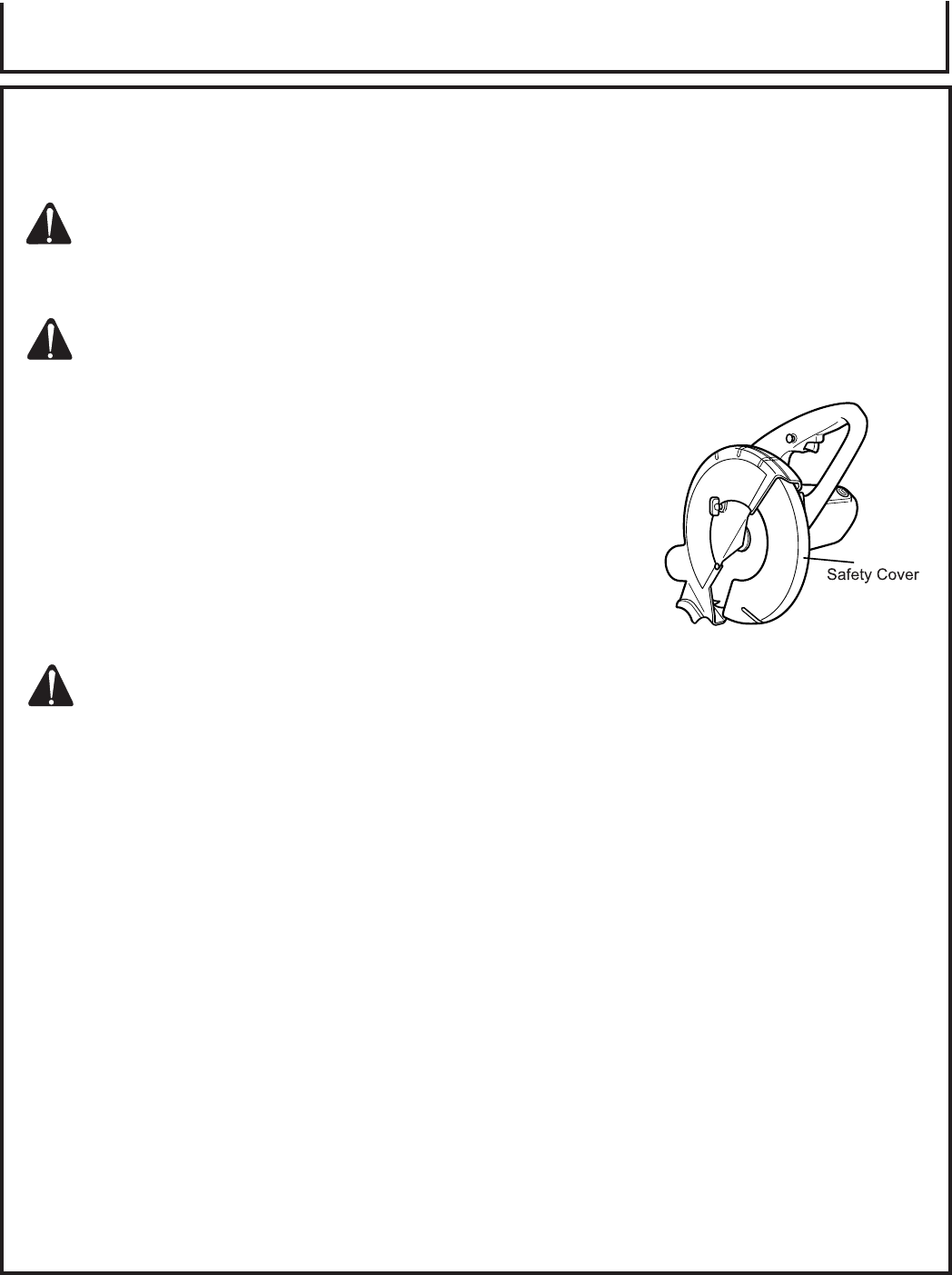
10-Inch Compound Miter Saw Operator's Manual 13
Operation
APPLICATIONS:
Wood, plywood, color board, soft fabric board, hard board similar materials and aluminum sash.
PRE-OPERATION:
1. Make sure that the power source is appropriate for the tool.
WARNING: NEVER CONNECT THE POWER TOOL UNLESS THE AVAILABLE AC POWER
SOURCE IS OF THE SAME VOLTAGE IS THAT SPECIFIED ON THE NAMEPLATE OF
THE TOOL. NEVER CONNECT THIS POWER TOOL TO A DC POWER SOURCE.
2. Make sure the trigger switch is turned OFF.
WARNING: IF THE POWER CORD IS CONNECTED TO THE POWER SOURCE WITH THE
TRIGGER SWITCH TURNED ON THE POWER TOOL WILL START SUDDENLY AND
CAN CAUSE A SERIOUS ACCIDENT.
3. Check the saw blade for visible defects:
Confirm that the saw blade is free of cracks or other visible damage.
4. Confirm that the saw blade is attached securely to the power tool:
Using the supplied wrench, tighten the bolt on the arbor shaft to secure the
saw blade. For details, see Fig. 25-a and Fig. 25-b in the section on
"SAW BLADE MOUNTING AND DISMOUNTING."
5. Check the safety cover for proper operation:
Safety cover is designed to protect the operator from coming into
contact with the saw blade during operation of the tool. Always
check that the safety cover moves smoothly and covers the saw
blade properly.
WARNING: NEVER OPERATE THE POWER TOOL IS THE
SAFETY COVER DOES NOT FUNCTION SMOOTHLY.
6. Confirm the position of the spindle lock before using the tool:
After installing the saw blade, confirm that the spindle lock has been returned to the retract position before
using the power tool (see Fig. 25-a).
7. Check the lower limit position of the Saw Blade:
Although it was adjusted before shipment, carefully check the height of the saw blade. Confirm that the saw
blade can be lowered 1-5/8" tp 1-21/32" (41 mm or 42 mm) below the table insert. For details, see the section
on "Checking the saw blade lower limit position".
8. Check the Power Receptacle:
To prevent overheating, accidental stopping or intermittent operation, confirm that the power cord plug fits
properly in the electrical receptacle and does not fall out after it is inserted. Repair and replace the receptacle if
it is faulty.
9. Confirm the tool's power cord is not damaged:
Repair or replace the power cord if an inspection indicates that it is damaged.
AFTER CONNECTING THE POWER PLUG TO AN APPROPRIATE AC POWER SOURCE, CHECK THE
OPERATION OF THE TOOL AS FOLLOWS:
10. Trial Run:
After confirming that no one is standing behind the power tool, start and confirm that no operating abnormalities
exist before attempting a cutting operation.
11. Inspect the rotating stability of the saw blade:
For precise cutting, rotate the saw blade and check for deflection to confirm that the blade is not noticeably
unstable; otherwise, vibrations might occur and cause an accident.
(Fig. 5)



